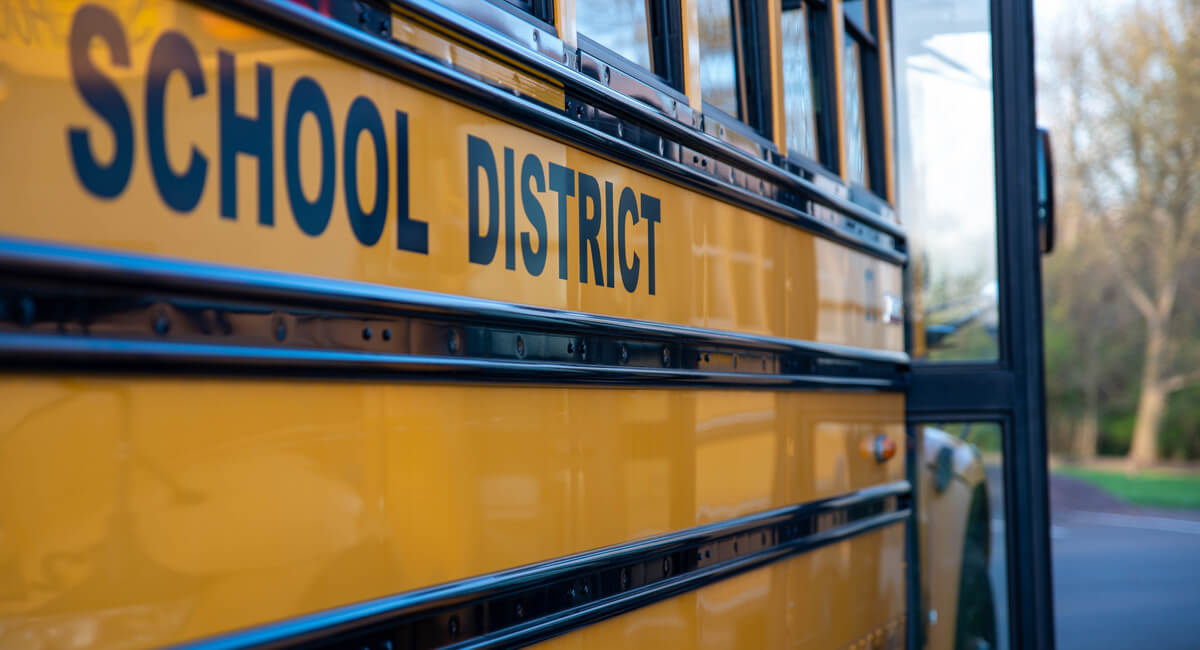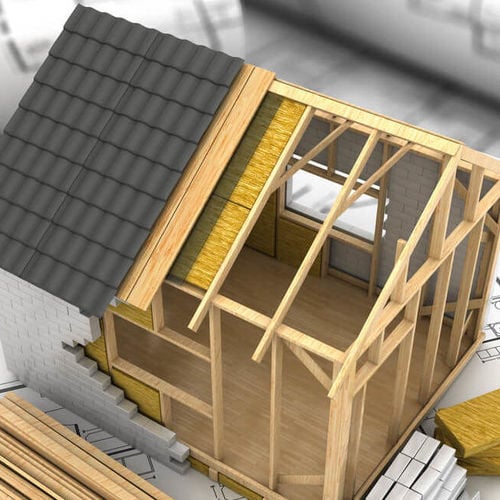Many factors come into play when purchasing a home. One of the most important considerations is the quality of the local school district, which can have a huge impact on property values. If you’re looking to buy a house in a town with great schools, you should expect to pay more.
Data shows a clear link between the strength of a school system and the value of the surrounding homes. Towns that spend more money on their schools tend to have higher housing prices. Additionally, when test scores for a district increase, home prices also rise.
Living in a good school district offers plenty of benefits, but it does come at a price. You should understand why school quality affects housing costs and how you can decide whether buying property in a good school district is worth it.
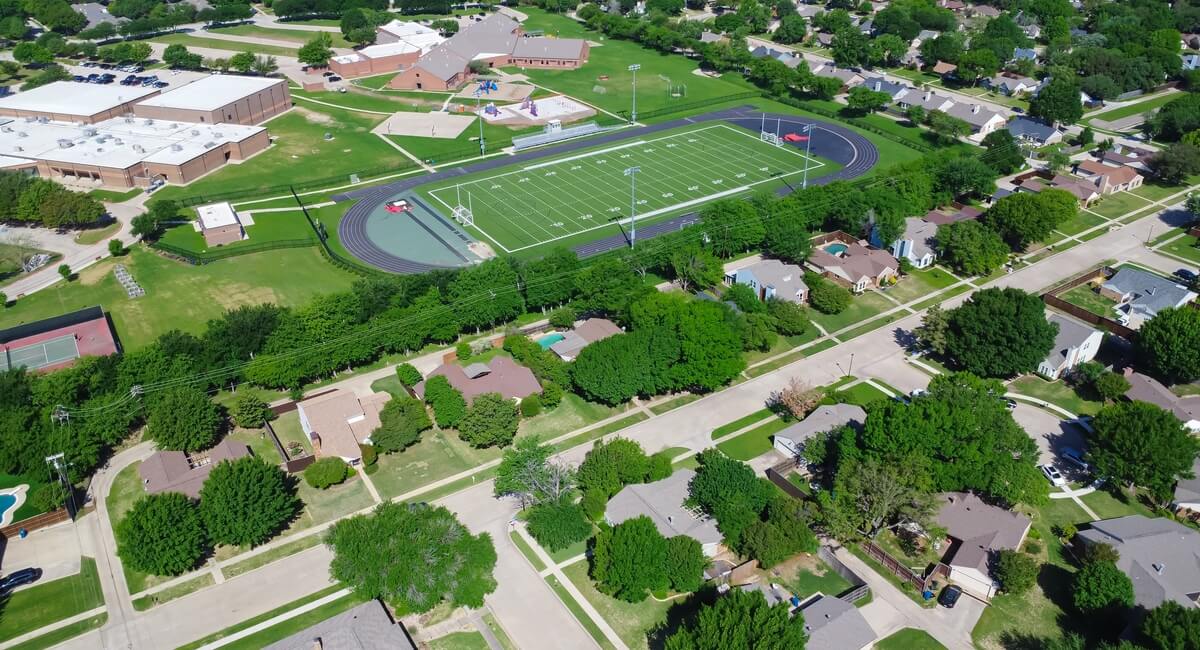
How School Districts Can Impact Home Prices
Strong school districts drive up home values for a number of reasons. Most notably, there’s simply a high demand for houses in good school districts. A large percentage of home buyers consider the quality of the schools in a town when looking at properties. Many buyers with children or buyers who plan to have children say that the school system is the most important factor for them when choosing where to live. Because so many home buyers want to live in good school districts, properties sell faster and for above their listing price. This is especially true for houses within walking distance of good schools.
Homes in good school districts also tend to have great resale value, which is another key consideration for many buyers. When you know your house is likely to rise in value, you may be willing to make a higher offer. Buying in a good school district can help guarantee this. As long as the school system maintains its quality, your home will continue to be valuable because of its location. This might be particularly important to you if you plan to eventually sell the home. For instance, many families buy houses in strong school districts with the intention of moving and downsizing after their kids graduate.
Houses in good school districts can also be expensive because these towns tend to be safer and offer better community resources. There’s often a connection between strong schools, low crime rates, and well-funded libraries, parks, and other amenities. Even when this isn’t actually the case, buyers perceive towns with good schools to be more desirable because the schools have a “halo effect” on the surrounding area. When a neighborhood has such a positive reputation, home buying can become competitive even for households without children.
Home buyers want to live in towns with good schools for several reasons. It secures a strong education for their kids, guarantees a return on investment on the home purchase, and usually indicates that the town is a safe and enjoyable place to live. Because living within a good school district offers so many perks, property values will almost always be higher than they are in surrounding areas.
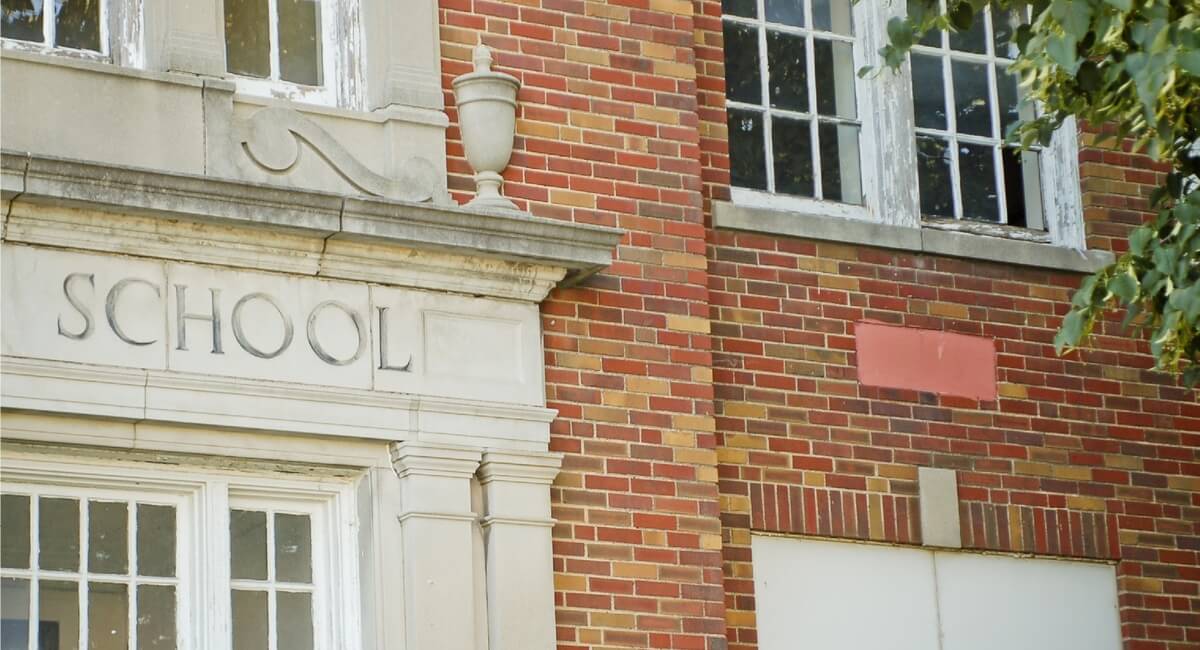
Factors To Consider When Living Next To A School
All houses within a strong school district will have a higher value, but the impact of schools on home prices is especially obvious with property that’s within walking distance of a school. These homes tend to be highly competitive among buyers. If you’re thinking about purchasing a house within walking distance of a school, there are some benefits and drawbacks to consider.
For families with kids, living close to a school can be extremely convenient. You can easily drop off and pick up your children, or they can walk to and from school themselves if they’re old enough. Your kids can also access the school’s playground in the afternoons or on the weekends. The areas immediately surrounding schools tend to have lower crime rates, too.
However, living next to a school also has its downsides. School traffic during morning dropoff and afternoon pickup can be a nuisance. Noise can be an issue, too. You might hear the PA system, kids playing outside during recess, cheering during sporting events, and other commotion that could be disruptive to your day. Street parking near your home may also be difficult during school hours if staff have nowhere else to park.
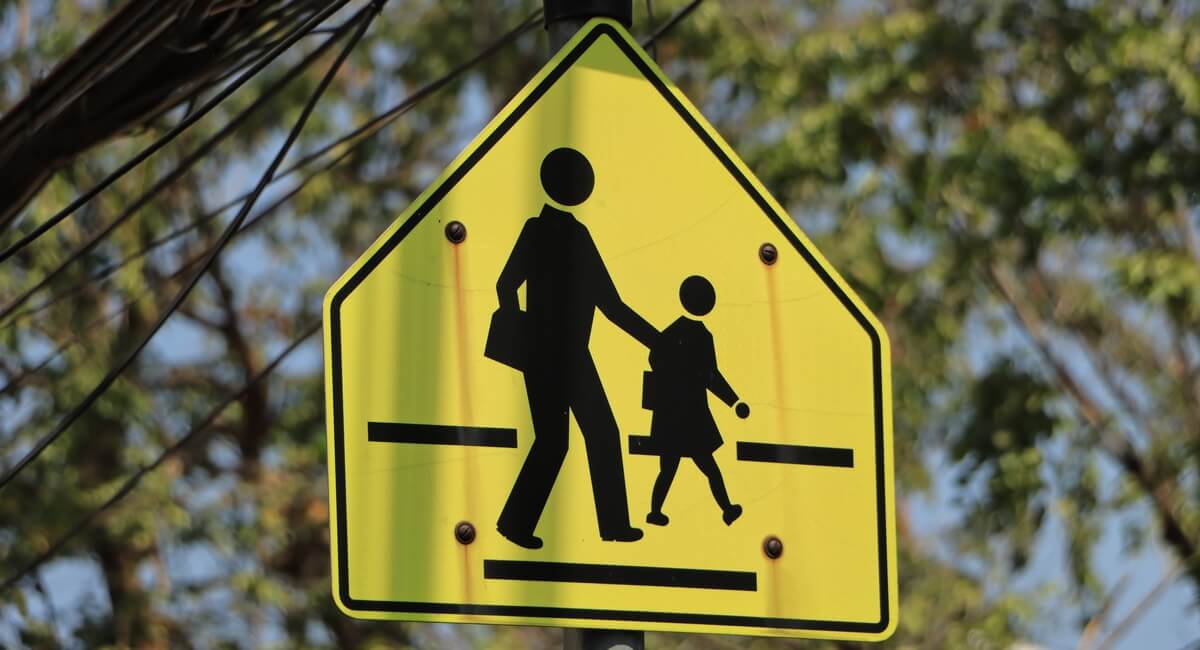
Buying A Home In A Good School District When You Don’t Have Kids
There are plenty of reasons to live in a good school district if you have or plan to have children. If you don’t plan to have kids, you might wonder if buying property within a good school district is worth the extra cost.
Purchasing a house in an area with great schools can be a wise financial move if you plan on selling the home someday. Property in strong school districts tends to provide a good return on investment. There’s also often a connection between the quality of the schools in a city and the quality of the other publicly funded resources, such as parks and libraries. Even if you don’t have children, you may benefit from the other public amenities of a town with good schools.
Some buyers without kids simply can’t justify the cost of homes in a strong school district, though. Property taxes can be especially expensive in towns with well-funded schools, which can eat into your housing budget significantly. You might decide that it’s not worth it to pay extra for a home and extra in property taxes if your family won’t ever utilize the school system.

How To Research School Ratings
If the quality of the schools is a deciding factor in your home search, you should know how to research school ratings. You can start by checking out the National Center for Educational Statistics, which reports information on school sizes, classroom sizes, and student-teacher ratios.
Another great resource is the Office of Elementary & Secondary Education, which provides links to the “State Report Card” for every state. These reports include information about test performance, graduation rates, absenteeism, and other metrics for individual schools and school districts.
You can look at many types of data to evaluate how well a school performs. However, if you plan for your children to attend the school, you should consider your personal preferences as well. For example, some kids do well in larger schools, and others thrive in smaller schools with fewer students per class. Your decision may also be influenced by the sports, clubs, or other activities the school offers.
Houses in good school districts tend to sell faster and at higher prices than other homes. Although these homes can be more expensive, they usually offer a good return on investment. Even if you don’t have children, the performance of the local school district might be a key consideration in your home search. Understanding the quality of the schools in the area will help you make a more informed decision when buying property.

